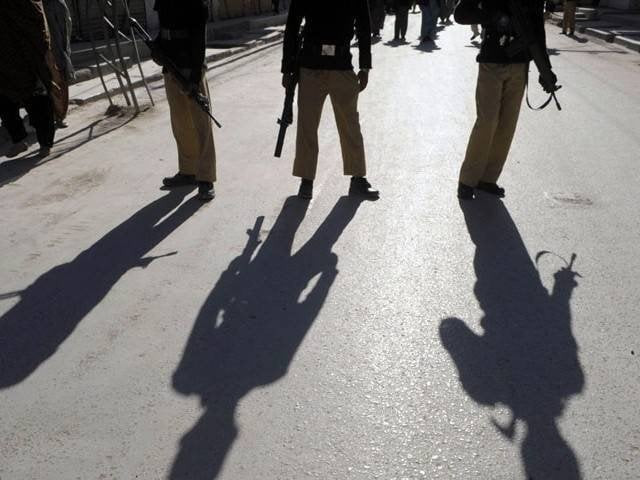Custodial torture: Police recruits urged to use modern investigative methods
Alternatives to physical abuse detailed in lectures at police training school

Alternatives to physical abuse detailed in lectures at police training school. PHOTO: AFP/FILE
This was the crux of lectures at the Mansehra Police Training School organised by the Human Development Organisation (HDO) on Tuesday.
In the session on the role of police in protection of human rights of detainees, HDO’s legal adviser Advocate Jawed Habib gave details of modern investigation techniques. He added that the ratio of acquittals from the court had increased because investigators had stuck to primitive investigation tools such as second and third-degree custodial abuse.
Habib added that that the use of torture during interrogation was against the spirit of human rights, and the Constitution of Pakistan, and the United Nations Convention Against Torture (UNCAT) - which Pakistan ratified in June 2010.
He told police officers that they can still trace actual culprits in a criminal investigation by respecting domestic and international instruments of human rights.
The torture-free alternatives, Habib pointed out, were DNAs, fingerprints, security cameras, cell phone data, social media footprints, Internet Protocol addresses, body fluid tests and psychological assessments as helpful tools for torture free investigation.
On the other hand, the non-physical good cop-bad cop routines, eye-blink method, journalistic, phonographic tests or polygraphs were some of the other economical, modern tools which could help investigators track a culprit.
Mansehra PTS Principal Tariq Iqbal Khan explained that the heavy burden of work on investigators and lack of resources had forced them to use methods prohibited by both the law and Islamic injunctions.
Published in The Express Tribune, March 8th, 2017.



















COMMENTS
Comments are moderated and generally will be posted if they are on-topic and not abusive.
For more information, please see our Comments FAQ